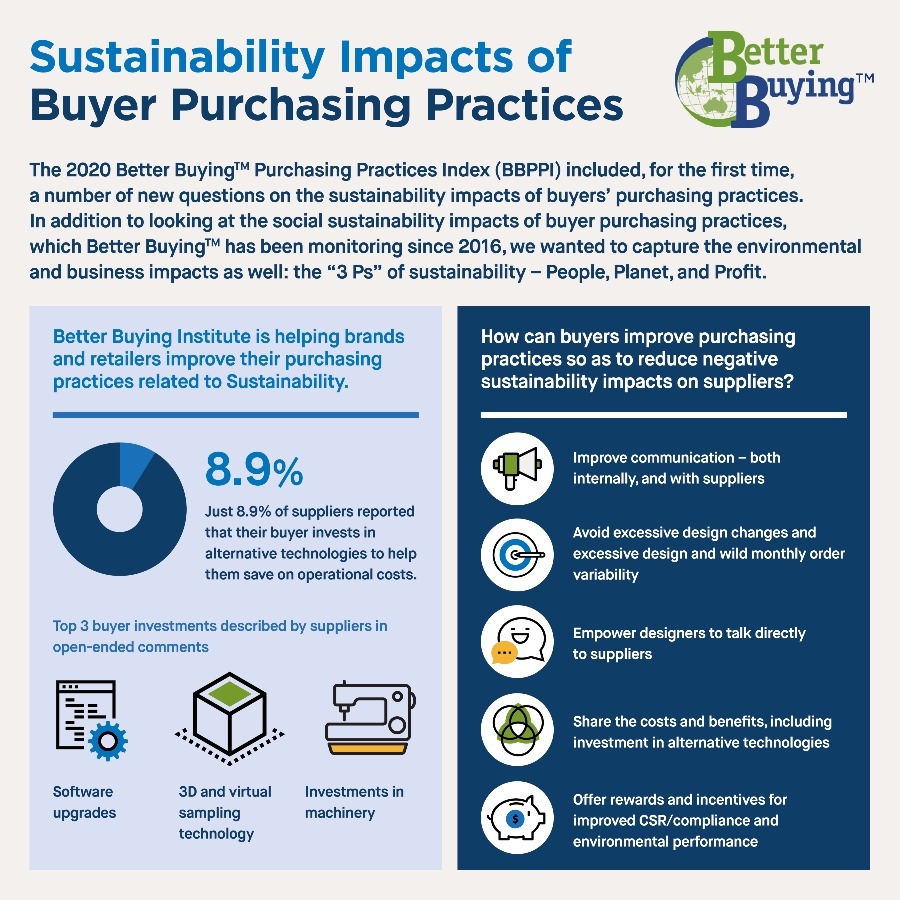Supplier insights from latest Better BuyingTM research reveal that some of the most impactful measures companies can take are low cost, and require minimal changes to a brand’s workflow
Simple, low-cost adjustments to purchasing practices can make a big difference to brands’ and retailers’ sustainability performance, according to new research published today by Better BuyingTM.
Investments in alternative technologies reflect a win-win approach to buyer-supplier business partnerships, but are not yet standard industry practice. Just 8.9% of suppliers surveyed by Better BuyingTM reported being supported by their customers to invest in cost-saving alternative technologies.
As part of the last Better BuyingTM ratings cycle, suppliers were asked a number of new questions about how their buyers’ purchasing practices impact the “3 Ps”of sustainability – People, Planet, and Profit. The research focused on 4 key areas: Design and Development; investment in cost-reducing alternative technologies; expectations and incentives for CSR, compliance, and environmental sustainability performance; and the impacts of steep variations in month-to-month order volume. The findings are summarized in a Better BuyingTM Special Report, Purchasing Practices and Sustainability: What improvements are suppliers seeing? published today.
Many suppliers in global supply chains have a strong commitment to operating more sustainably and have valuable insights into how their buyers can improve their purchasing practices in order to save on costs and reduce waste.
Some of the most impactful changes cited by suppliers do not require expensive investments or drastic changes to a buyer’s workflow. Being able to speak directly with the individuals who have intimate knowledge of a design concept, for example, as opposed to other team members, can help resolve any questions or concerns about design details early on in the process, while better alignment between sample requests and actual orders reduces wasted time, materials, and financial resources.
And where buyers offered incentives for improved performance, the potential impact on sustainability was greater, provided the incentives offered were the right ones, and offered direct financial benefits to the supplier.
Dr. Marsha Dickson, President and Co-Founder of Better BuyingTM, comments: “By engaging with Better BuyingTM, brands and retailers can access data-driven insights and suggestions from their suppliers, and begin to work in partnership with them to address shared sustainability goals, reduce their environmental footprint, and to improve accountability to shareholders, investors, and consumers.”







